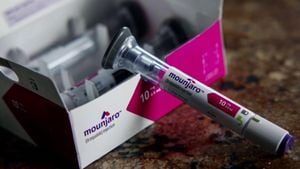The number of accidental deaths across the UK has surged to record levels, prompting urgent warnings about the nation’s safety standards. According to the latest report by the Royal Society for the Prevention of Accidents (RoSPA), there has been alarming growth in such fatalities, with accidental deaths climbing 42% over the last decade. The data reveals grim realities: more than 20,000 people die annually from accidents, underscoring the need for immediate preventative measures.
This increase marks accidents as the leading cause of preventable death for individuals under 40, and the home has emerged as the most dangerous place, accounting for over half of these fatalities. RoSPA’s chief executive, Becky Hickman, has labeled the situation as indicative of an "accident crisis", emphasizing the need for concerted action to tackle the rising toll.
The financial impact is equally staggering, with accidents costing the UK nearly £12 billion each year. This includes around £6 billion directed to the National Health Service (NHS) and another £5.9 billion lost due to diminished workforce productivity from accident-related absences.
Brian Whitnall, a victim of such precipitous dangers, recounted his own harrowing experience this year. While mowing his lawn, he accidentally severed two of his toes. "It was just another warm Sunday, and I was cutting the grass as my partner was jet washing the driveway," he explained. Tragically, his mishap led to hospitalisation for six days and surgeries, as he faced the harsh reality of lost income and recovery time. "I lost two toes, and quite frankly, it’s been devastating for both my health and my work," he added, reflecting the broader impacts of such incidents.
Data from the report indicates steep escalations across the UK: England saw fatal accidents rise by 40%, indicative of national trends, with Northern Ireland experiencing the most pronounced jump at 67%. Scotland and Wales followed closely with increases of 60% and 42%, respectively. Interestingly, hospital admissions for serious injuries resulting from accidents have rocketed by 48% across England over the last twenty years.
According to the figures released, nearly 29 million working days were forfeited due to accidents during the most recent fiscal year, tenfold the number lost due to industrial strikes. This suggests not just individual suffering but also significant economic ramifications which RoSPA reports are burdening businesses and straining the NHS.
The report identified several key accident causes: around 46% of accidental deaths were linked to falls, with poisonings contributing to 26%, and transport-related fatalities making up about 7%. The NHS spent approximately £4.6 billion to treat patients with accident-related injuries last year, reflecting the extensive burden on healthcare resources.
Over the last year, accidents also accounted for around seven million visits to A&E departments across the nation, incurring more than £600 million costs. This systematic drain on health resources highlights the pressing need for preventative action; RoSPA has now called for the introduction of a National Accident Prevention Strategy, aimed at reducing accidents, preserving lives, supporting the economy, and freeing up capacity already stretched within the NHS.
Hickman reiterated the urgency of rethinking safety measures: “We must take action now to stop preventable deaths and injuries. Accidents are not inevitable; they are avoidable. There’s so much we can do to help our communities and protect our loved ones.” It's increasingly clear; without proactive steps, the UK risks not only unique individual tragedies but also national crises tied to healthcare and public safety.
The data reveals the pervasive and tragic impact of accidents, making it clear to all stakeholders: more must be done to protect lives. The current trends cannot continue unchecked; the time for intervention is now.



